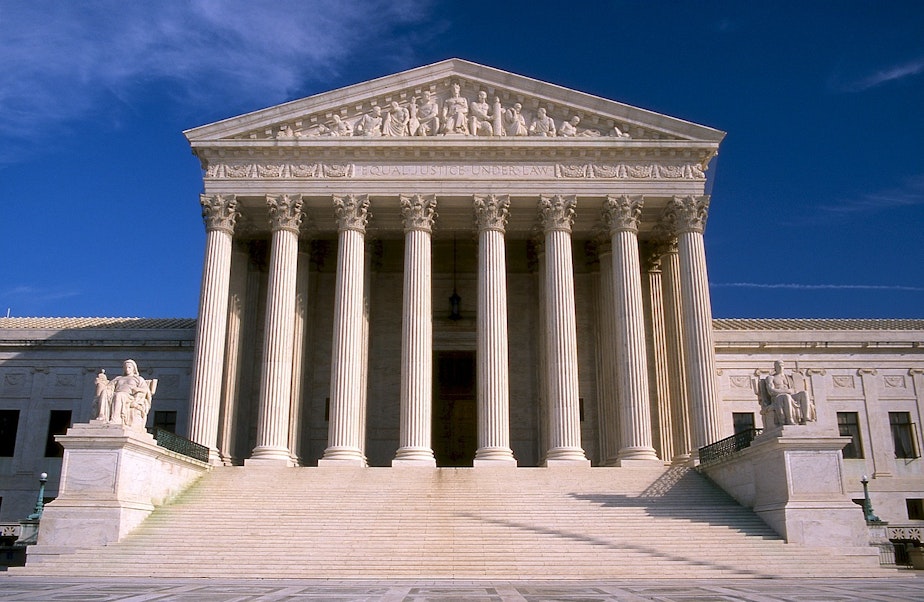Barred from SCOTUS for wearing a headdress

Is it constitutional to keep a tribal leader out of the Supreme Court because of traditional regalia? Is it realistic to ask big tech firms not to contract with ICE, or the Pentagon? And how important is your identity – to others and to you?
Listen to the full show by clicking the play button above, or check out one of the show’s segments below. You can also subscribe to The Record on your favorite podcast app.
Yakama Nation Chairman not allowed headdress
If you’re going to a Supreme Court hearing, you can’t wear sunglasses. Overcoats. Non-military ID tags. And, as we found out this week, traditional headdress. Yakama Nation Tribal Council Chairman JoDe Goudy was barred from entering the court this week unless he removed his headdress. Goudy refused, and says it was a violation of his constitutional rights. We asked Matthew Fletcher, Director of the Indigenous Law and Policy Center at Michigan State University.
Margaret O'Mara on tech workers
If you want to protest Amazon’s plan to sell facial recognition software to ICE, you could do worse than to picket in a Jeff Bezos mask. Tech workers at places like Microsoft and Google are also starting to object to their companies’ government relationships. But University of Washington history professor Margaret O’Mara says separating technology from government would be harder than you might think.
Kwame Anthony Appiah: The Lies That Bind
Philosopher and New York Times Magazine ethicist Kwame Anthony Appiah’s latest book is called The Lies That Bind. In it he speaks of the lies of identity – which, while it can be good, can also lead us to essentialize ourselves and collapse the multiple communities to which we belong. He told Bill Radke that it might behoove us to wear our identities a bit more lightly.

